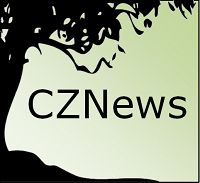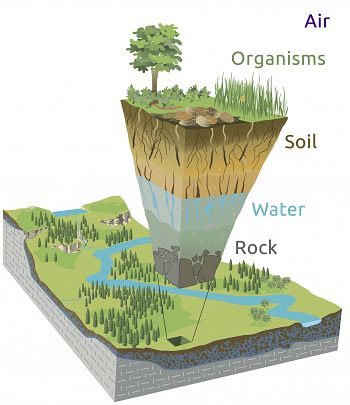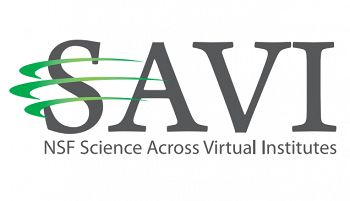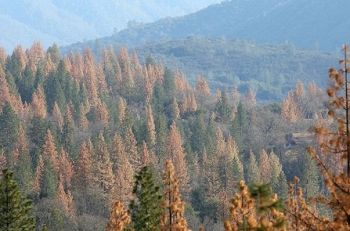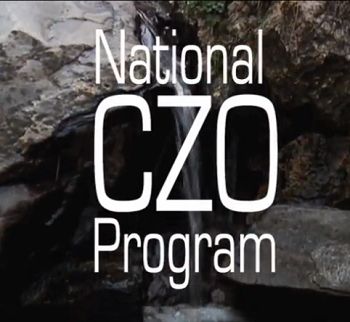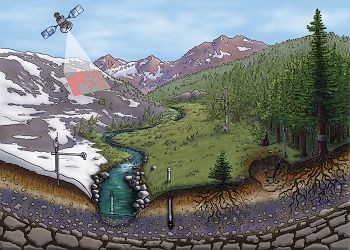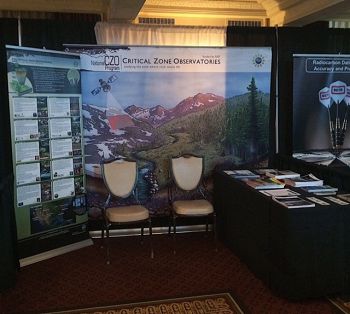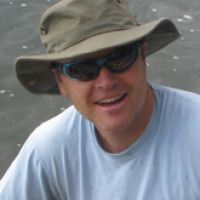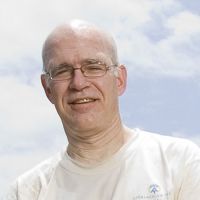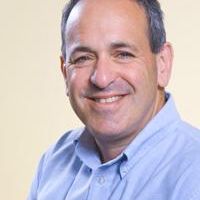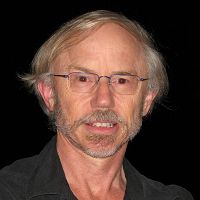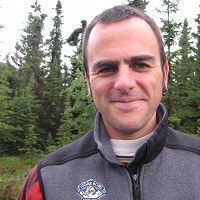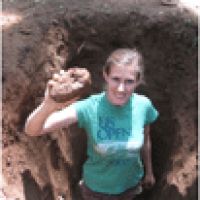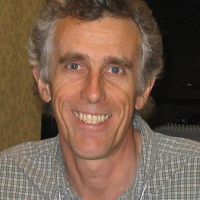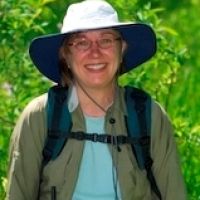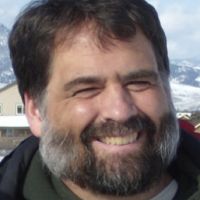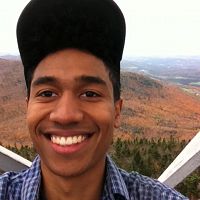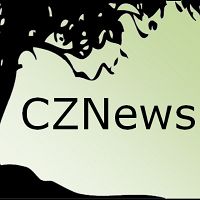CZNews: Spring 2017
Print Verison: CZNews - Spring 2017 (1 MB PDF)
CZO — LTER — NEON
The CZO community has actively engaged in outreach to the LTER network and NEON through the CZO Science Across Virtual Institutes (SAVI) project. The aim of this outreach effort is to identify commonalities in societally relevant research questions from similar scientific research agendas and to potentially fill gaps in environmental gradient space from the array of sites in the U.S. The overall goal is to advance the work of the networks by proposing an ambitious plan to apply CZO style science at LTER and NEON sites, and to enjoin LTER and NEON scientists to study CZO sites. Outreach to these communities appears headed to a fruitful outcome. The CZOs have had a presence at the last two LTER triennial meetings in 2012 and 2015. Notably in 2015, National Office Coordinator Tim White, Calhoun CZO PI Dan Richter, Luquillo CZO PI Bill McDowell, and CZO Steering Comm. Member Peter Groffman led a working group workshop entitled “CZO/LTER collaboration.” A manuscript entitled “What would Darwin and Lyell say? Fully integrating biology and geology in long-term environmental networks,” co-authored by the workshop leaders and a cast of many more, outlines a vision for collaboration between CZO, LTER and NEON and is in review with BioScience as a result of that workshop. More recently Tim White was invited to an LTER-NEON science-planning workshop that he attended in Santa Barbara, CA in early April 2017. The full results of that meeting will not be known for some months, but there was much excitement and enthusiasm for connection between the networks and we anticipate having much to describe in an upcoming newsletter.
2017 Webinar Series
The 2017 CZO webinar series Critical Zone and Society explores the notion that society must first understand the CZ system and the coupled physical, chemical, and biological processes and services of the CZ to achieve environmental sustainability. Understanding how such processes operate, especially those that are of value to society, with and without the presence of humanity, and how they may be altered due to global climate and land-use change, is essential for developing environmental management protocols and sustainable resource-consuming practices. Webinar topics covered so far include critical CZ problems, CZ services, water scarcity in a changing world, California’s drought resilience and water security, and possibilities of forecasting Earth Surface processes using models and CZ data. These webinars are available to view on our YouTube channel: www.youtube.com/CriticalZoneOrg. Don’t miss the last webinar in this webinar series, “Policy Relevance of Critical Zone Science,” on Tuesday, May 9 at 3 pm ET with Steven Banwart (Univ. of Leeds)! Find out how to participate here.
CZO Arlington Meeting
We appreciate all who have registered for the CZO meeting being held in Arlington, VA on June 4-6. Participants span a wide range of career levels representing the U.S. CZO program and other observatory networks, government agencies (i.e. NSF, USFS, and USDA), international CZ research, and various research institutions. The meeting is set to begin with introductory and scientific talks, and poster sessions on CZ research represented by these participants. With the theme "Critical Zone Science: Current Advances and Future Opportunities,” the meeting will focus on two questions: 1) What are the most important fundamental and societally relevant CZ science challenges? 2) What research framework (observatories and/or other approaches) is required to address these challenges? To answer these questions, early career scientists will lead and report on breakout group results during a plenary discussion. The final day of the meeting will focus on the role of CZ science in society, geoscience education and outreach, and in cross-network collaboration within the U.S. and internationally. Breakout groups will discuss the development and future of these initiatives and these results will be described in our summer newsletter. You can find more information on the meeting on CriticalZone.org.
Events
- CZO Webinar “Policy Relevance of Critical Zone Science” with Steven Banwart, May 9, 3 pm ET, Online
- CZO Meeting “Advances and Opportunities,” June 4-6, Arlington, VA
- AGU-SEG Hydro-geophysics Workshop, July 24-27, Stanford, CA
- Goldschmidt 2017 Conference, August 13-18, Paris, France
CZO Spotlight: The frontier beneath our feet
The American Geophysical Union (AGU) published a collection of more than 25 open-access essays as commentaries across its scientific journals highlighting the role Earth and space science research plays in society. As part of this collection, CZO Steering Committee Member Gordon Grant (USDA Forest Service) and Eel River CZO PI William Dietrich (UC Berkeley) described the critical zone as an emerging frontier in Earth science in “The frontier beneath our feet” published in Water Resources Research (April 2017). Authors present the critical zone as a complex and distinct zone that is challenging to observe and study but the understanding of this zone is vital to addressing key environmental and social problems. The study of the critical zone is an international and interdisciplinary science effort utilizing field studies, long-term observatories, and new geophysical measurement techniques. This effort has revealed counter-intuitive insights into critical zone structure and processes that speak directly to critical societal challenges: maintaining soil productivity in intensively managed landscapes, ensuring that forests don't die during droughts, and improving landscape resilience to wildfires, floods, and hurricanes. Find the whole collection of essays here.
InTeGrate Course on CZ Science
A 15-week semester-long upper-level undergraduate course curriculum entitled “Introduction to Critical Zone Science” will be available free online in summer 2017 as part of the Carleton College Science Education Resource Center Interdisciplinary Teaching about Earth for a Sustainable Future (InTeGrate) project. The project was funded by NSF to improve geoscience education and integrate the geosciences across other academic disciplines, and the free courses developed from the project are available at www.serc.carleton.edu/integrate. The CZ course introduces and examines the life-sustaining services and resources provided by the CZ using publicly-available CZO data and literature. It emphasizes a systems approach to understanding Earth systems and aims to develop student learning and critical thinking skills. The course was designed by an interdisciplinary team led by CZO National Office Coordinator Tim White and the following team: Adam Wymore (Univ. of New Hampshire), Adam Hoffman (Univ. of Dubuque), Ashlee Dere (Univ. of Nebraska-Omaha), James Washburne (Univ. of Arizona), Martha Conklin (Univ. of California, Merced), and Susan Gill (Stroud WRC). The team also authored a manuscript to be published in the March 2017 issue of the Journal of Geoscience Education.
2017 GSA Joint Section Meeting
The 2017 Geologic Society of America (GSA) Joint Northeastern and North-Central Section Meeting was held March 19-21 in Pittsburgh, PA. Members of the CZO National Office (CZO NO) met with meeting attendees to discuss CZ science at the CZO booth in the exhibit hall. Don Duggan-Haas (Paleontological Research Institution) presented “Teaching Climate Change, Energy, and Critical Zone Science: Developing Optimally Distinct Approaches to Science Education Reform.” Don’s Prezi presentation is available here. Justin Richardson (Cornell) presented on his cross-CZO research “Weathering Losses and Phase Partitioning of Aluminum in the Critical Zone Using Gallium/Aluminum Ratios.” Also in attendance were two former Shale Hills CZO REUs, Meaghan Shaw (Kent State, 2015 REU) and Taylor Blackman (Penn State, 2016 REU) as presenters. Shaw presented a poster on work with advisor and former Shale Hills CZO graduate student, Dr. Elizabeth Herndon (Kent State), while Blackman gave a talk on his CZO REU research with Tim White (Penn State) examining the periglacial legacy of vernal pools on shale in central PA. We thank everyone who stopped by our booth and look forward to participating in future GSA meetings!
CZNews
Receive the CZO Email Newsletter
Occasional email will include news, events, and other info related to Critical Zone Observatories.
We hate spam as much as you do, so your information will never be shared. You can unsubscribe at any time.
NSF Science Across Virtual Institutes
Southern Sierra CZO
The U.S. CZO Network
Illustration Jenny Parks/ Southern Sierra CZO
InTeGrate
Photo: Sarah Sharkey
Modified from Chorover, J., R. Kretzschmar, F. Garcia-Pichel, and D. L. Sparks. 2007. Soil biogeochemical processes in the critical zone. Elements 3, 321-326. (artwork by R. Kindlimann)
News Category:
EDUCATION/OUTREACH
People Involved
CZO
-
National, Shale Hills, INVESTIGATOR, STAFF
-
Calhoun, INVESTIGATOR
-
Luquillo, INVESTIGATOR
-
National, ADVISORY BOARD
-
Eel, INVESTIGATOR
-
Luquillo, INVESTIGATOR
-
Shale Hills, INVESTIGATOR, COLLABORATOR
-
Catalina-Jemez, INVESTIGATOR
-
Sierra, INVESTIGATOR
-
National, INVESTIGATOR, STAFF
-
National, INVESTIGATOR, STAFF
Related News
Explore Further
